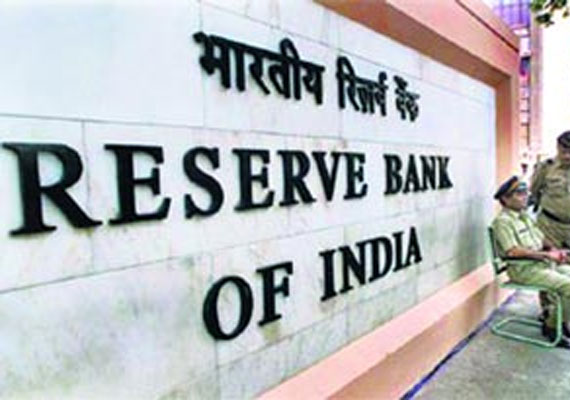As the central banking institution of India, the Reserve Bank of India (RBI) plays a pivotal role in regulating and overseeing the country’s foreign exchange (forex) market. This market facilitates the exchange of currencies and serves as a crucial gateway for trade and investment. The RBI’s regulatory framework ensures the smooth functioning of the forex market while maintaining monetary stability.

Image: www.youtube.com
RBI’s Regulatory Framework
The RBI’s regulatory responsibilities under the Foreign Exchange Management Act (FEMA) encompass various aspects of the forex market, including:
a. Foreign Exchange Reserves Management:
- The RBI manages India’s foreign exchange reserves, which are crucial for the country’s economic strength and stability.
- It intervenes in the forex market to stabilize the exchange rate and maintain orderly market conditions.
b. Foreign Exchange Market Monitoring:
- The RBI monitors and analyzes the forex market to identify trends, imbalances, and potential risks.
- It gathers data from various market participants to assess market liquidity and foreign capital flows.
c. Regulation of Authorized Dealers (ADs):
- ADs are banks and financial institutions approved by the RBI to participate in the forex market.
- The RBI regulates their activities, sets reporting requirements, and ensures compliance with forex regulations.
d. Exchange Rate Management:
- The RBI influences the exchange rate through monetary policy tools, market interventions, and foreign currency swaps.
- Its goal is to achieve a balance between maintaining exchange rate stability and facilitating international trade.
e. Anti-Money Laundering (AML) and Combating Financing of Terrorism (CFT):
- The RBI implements AML/CFT measures to prevent the usage of the forex market for illegal activities.
- It requires ADs to conduct due diligence on customers and report suspicious transactions.
Latest Trends and Developments
The RBI continuously updates its regulatory framework to keep up with evolving market dynamics and global best practices. Recent trends and developments include:
- Liberalization Measures: The RBI has gradually liberalized the forex market, allowing greater flexibility for businesses.
- Technology Adoption: The RBI promotes the use of technology in forex transactions, such as online platforms for trade and settlement.
- Sustainability Focus: The RBI encourages sustainable investment and considers climate-related risks in its forex operations.
Expert Advice for Market Participants
To navigate the forex market effectively, experts recommend:
- Understanding Market Dynamics: Gaining in-depth knowledge about the forex market, including factors influencing exchange rates and market participants.
- Research and Analysis: Conducting thorough research and analysis of specific currency pairs and economic data to make informed decisions.
- Risk Management: Implementing sound risk management strategies to mitigate potential losses and protect capital.
- Compliance with Regulations: Staying abreast of the RBI’s regulations and adhering to them to avoid penalties and reputational risks.
- Utilizing RBI Resources: Leveraging the RBI’s resources, such as publications, websites, and consultation services, to stay informed.

Image: www.indiatvnews.com
Frequently Asked Questions (FAQs)
Q: Why is forex market regulation necessary?
A: Forex regulation ensures orderly market operations, minimizes risks, prevents illegal activities, and supports monetary stability.
Q: What are the RBI’s main regulatory responsibilities in the forex market?
A: Managing foreign exchange reserves, monitoring the market, regulating ADs, influencing exchange rates, and implementing AML/CFT measures.
Q: How does the RBI monitor the forex market?
A: Through data collection from market participants, analysis of market trends, and collaboration with international financial institutions.
Q: What are the latest trends in forex regulation?
A: Liberalization measures, technology adoption, and a focus on sustainability.
Q: How can market participants stay compliant with forex regulations?
A: By staying informed about RBI regulations and adhering to them, conducting due diligence, and maintaining accurate records.
Role Of Rbi In Regulating Forex Market
Conclusion
The Reserve Bank of India (RBI) plays a multifaceted role in regulating the forex market, fostering economic stability, and mitigating financial risks. Its robust regulatory framework, combined with continuous innovation and monitoring, ensures a conducive environment for trade and investment while safeguarding the interests of all market participants. As the forex market evolves, the RBI remains committed to adapting and enhancing its regulations to meet the changing needs of the Indian economy and global best practices.
Are you interested in the role of the RBI in regulating the forex market and gaining insights into best practices for navigating this dynamic landscape? Share your thoughts in the comments section and connect with us for further discussions and updates.






